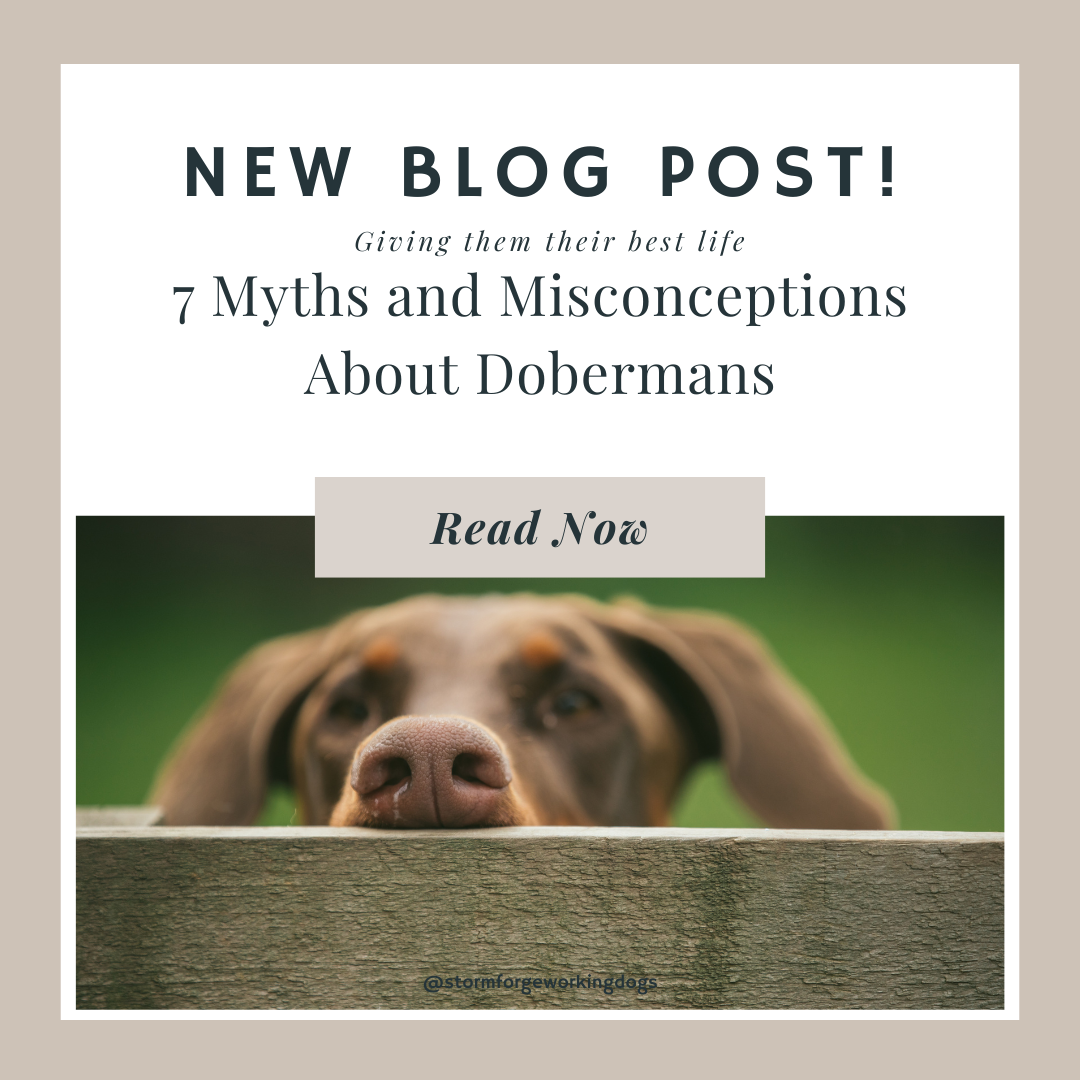The Doberman is a breed often surrounded by myths and misconceptions that can impact how it is perceived and treated. Known for its intelligence, loyalty, and striking appearance, the Doberman is sometimes misunderstood due to stereotypes and misinformation. In this post, we’ll debunk common myths and clarify misconceptions about Dobermans, providing a more accurate picture of this remarkable breed.
Myth 1: Dobermans Are Aggressive and Dangerous
Reality: One of the most prevalent myths about Dobermans is that they are inherently aggressive or dangerous. In reality, Dobermans are not aggressive by nature; they are intelligent and loyal dogs who can exhibit protective behaviors when needed. Like any breed, a Doberman’s temperament is influenced by its upbringing, training, and socialization. With proper training and socialization from a young age, Dobermans are affectionate, well-behaved, and make excellent family pets.
Myth 2: Dobermans Are Not Good with Children
Reality: Another common misconception is that Dobermans are not good with children. On the contrary, Dobermans can be very gentle and loving with children when properly socialized. They often form strong bonds with their families and can be great companions for kids. However, it is important to supervise interactions between dogs and young children to ensure that both parties understand appropriate behavior and boundaries.
Myth 3: Dobermans Are High Maintenance Dogs
Reality: Some people believe that Dobermans are high maintenance due to their sleek coats and energetic nature. While Dobermans do have specific needs, such as regular exercise and mental stimulation, they are relatively low-maintenance in terms of grooming. Their short coat requires minimal brushing and is less prone to shedding compared to some other breeds. Regular exercise, training, and a balanced diet are key to keeping a Doberman healthy and happy.
Myth 4: Dobermans Are Prone to Aggression Toward Other Animals
Reality: The myth that Dobermans are inherently aggressive towards other animals is inaccurate. While Dobermans have a strong prey drive and may show some territorial behavior, they can coexist peacefully with other pets when properly socialized. Early socialization with other animals, combined with training, helps Dobermans learn how to interact appropriately with different species.
Myth 5: Dobermans Are Only Suitable for Experienced Dog Owners
Reality: It’s a common belief that Dobermans are only suitable for experienced dog owners due to their strong personalities and intelligence. While Dobermans are indeed a breed that benefits from firm, consistent training, they are also highly trainable and eager to please. First-time dog owners who are willing to invest time in training and socialization can successfully raise a well-behaved Doberman. Support from a reputable breeder or trainer can further help new owners understand the breed’s needs and characteristics.
Myth 6: Dobermans Are Prone to Health Problems
Reality: While Dobermans are susceptible to certain health issues, such as dilated cardiomyopathy (a heart condition) and hip dysplasia, responsible breeding practices can mitigate many of these risks. Reputable breeders conduct health screenings and strive to produce healthy puppies. Regular veterinary care and a healthy lifestyle also contribute to minimizing potential health issues. It’s essential for Doberman owners to be proactive about their dog’s health and work with their veterinarians to address any concerns.
Myth 7: Dobermans Are Not Affectionate Pets
Reality: Some people believe that Dobermans are aloof or detached, but this is far from the truth. Dobermans are known for their loyalty and affection towards their families. They often seek physical closeness and enjoy being part of family activities. Their devotion and protective instincts make them loving and attentive companions.
Understanding the Real Doberman
By debunking these myths and misconceptions, we can gain a clearer understanding of the Doberman as a breed. Dobermans are intelligent, loyal, and versatile dogs that can thrive in a variety of environments with proper training and care. They are not defined by stereotypes but by their individual personalities and the efforts of responsible owners.
Embracing the Doberman’s True Nature
The Doberman deserves to be appreciated for its true nature rather than the myths that surround it. By fostering accurate information and understanding the breed’s needs and characteristics, we can ensure that Dobermans are given the recognition and care they deserve. Embrace the Doberman for the loyal, intelligent, and affectionate companion it is, and you’ll find a rewarding and enriching relationship.
